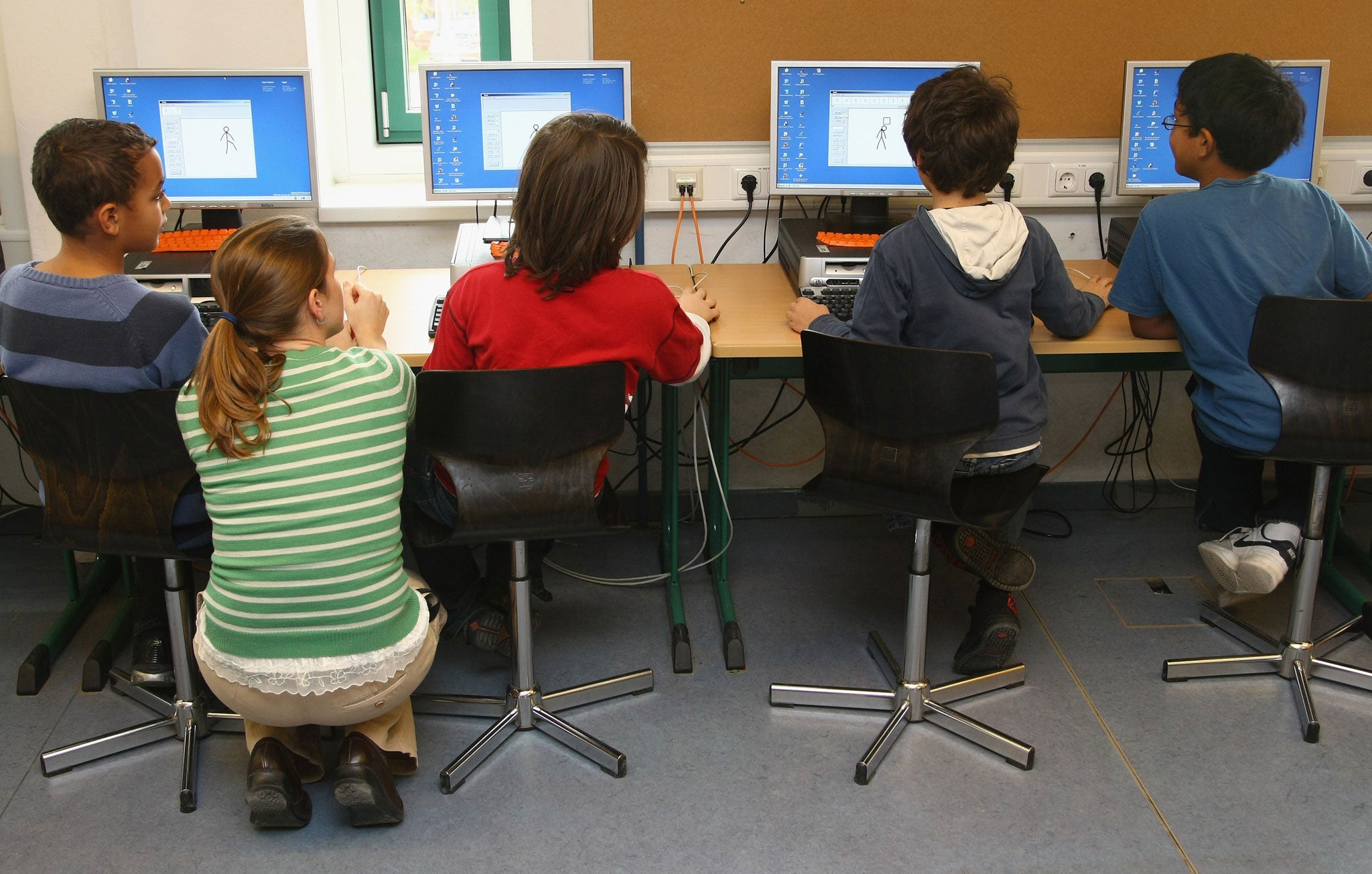Why children should learn how to program
Even if pupils don't use the skill in later life, they will have learned something valuable

Your support helps us to tell the story
From reproductive rights to climate change to Big Tech, The Independent is on the ground when the story is developing. Whether it's investigating the financials of Elon Musk's pro-Trump PAC or producing our latest documentary, 'The A Word', which shines a light on the American women fighting for reproductive rights, we know how important it is to parse out the facts from the messaging.
At such a critical moment in US history, we need reporters on the ground. Your donation allows us to keep sending journalists to speak to both sides of the story.
The Independent is trusted by Americans across the entire political spectrum. And unlike many other quality news outlets, we choose not to lock Americans out of our reporting and analysis with paywalls. We believe quality journalism should be available to everyone, paid for by those who can afford it.
Your support makes all the difference.There has, in the last couple of years, been a rising interest in teaching children as young as five how to program computers.
A new computer science curriculum has been introduced into schools in England and there are many of out-of-school coding clubs up and down the country aimed at boosting programming skills. A £25 bare bones computer called the Raspberry Pi has soared in popularity and is helping children to code using a language called Scratch.
Even the BBC is wading into this space. Director General Tony Hall said he had plans to “bring coding into every home, business and school in the UK” in an initiative that will launch in 2015. But the Beeb has form in this area: it put its name to a series of micro computers in the 1980s and they were taken up by pretty much every school in the land.
There are some people, however, who believe teaching children to code is pointless. Journalist Willard Foxton wrote a blog on the Daily Telegraph website claiming “coding is a niche, mechanical skill, a bit like plumbing or car repair”. He made his argument personal, calling the bulk of developers “exceptionally dull weirdos” and said ICT was taught by “the runts of the teaching litter and seen as pointless by pupils”.
But you only have to go back to the 1980s to see just why an apathetic approach to coding can be very damaging, more so now that we live in an age when children are surrounding by technology and use it every day.
Thirty years ago, the Sinclair ZX81 was the height of technology or at least it was for a lot of people. It cost £125 and those children who had parents who could afford this were very lucky. The same goes for children who had any form of computer at home, be it a Commodore 64, Amstrad CPC or, God forbid, a Dragon32.
It meant they had a chance to get to grips with the workings of a computer and an opportunity to code. Many children did indeed turn their hands to programming. Whereas their parents' battles with technology usually extended no further than trying to decipher the VCR, the kids, having hoodwinked parents into buying them a computer “for their education”, were playing games with titles as diverse as Jet Set Willy and Sgrizam, as well as managing to code their own.
It was not uncommon for teenagers to spend time after school tapping away. Some became rich doing so. It's no accident Britain became a hotbed of games development talent (an industry now worth £1 billion to UK GDP).
But even though schools had those BBC Micros, not everyone got the chance to use them. They were so expensive that schools could only afford to buy a small number. At my primary school they sat idle most of the time. I remember a group of us looking at them in awe, unable to turn them on because no-one had shown us how. For some, they were scary objects.
It caused a split. Those who had computers at home were very comfortable with the machines. Those who didn't could barely tap two keys without spending an eternity scouring the keyboard wondering why someone had placed them all higgledy-piggledy. Computer-less children grew up computer illiterate. Worse, some became technophobes.
Today, we have a chance to rectify the mistakes of the past and ensure that every child has the same start. By introducing all children to programming, it whets their appetite, opens up fresh possibilities, turns them from consumers into creators and aids their thought processes.
Even if children do not go on to become programmers later in life, they will have learnt to express logic in a form that can be processed automatically. They will learn how to solve problems and they will understand structure and organisation.
It will equip them for the future, instil in them an appreciation of maths and science and give them a rounded education. It is no folly that the computer industry requires programmers to have knowledge of advanced maths or physics.
There are, of course, some hurdles. Some teachers struggle to teach programming because they cannot code themselves. But there are many teachers who are enthusiastic about the new curriculum and those that can't, are determined to become those who can.
Only by creating exciting, creative and challenges courses, can pupils begin to understand that Computing is more than being able to use Microsoft Word or being able open an app on an iPad. Let no-one be left behind and let everyone learn.
Join our commenting forum
Join thought-provoking conversations, follow other Independent readers and see their replies
Comments